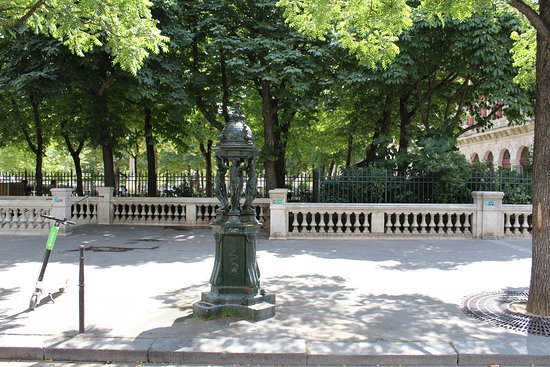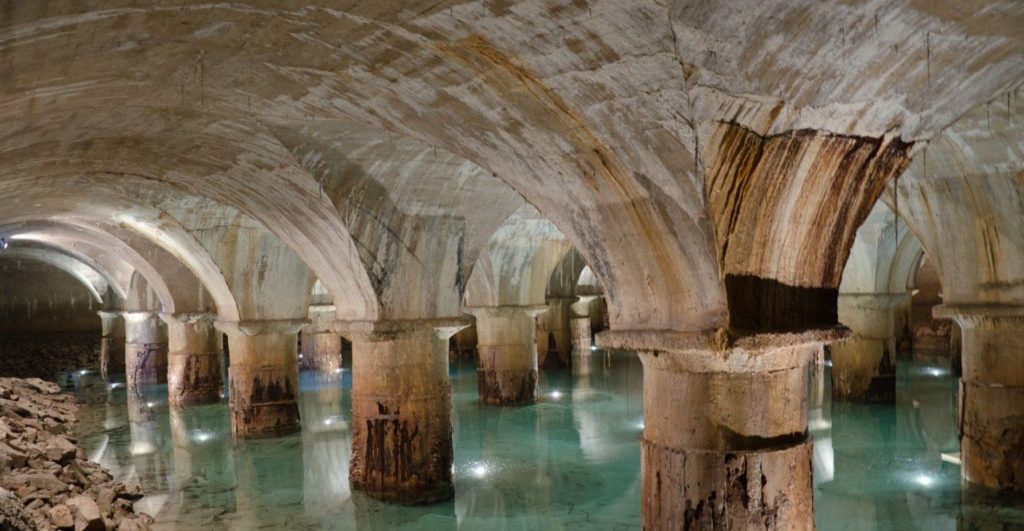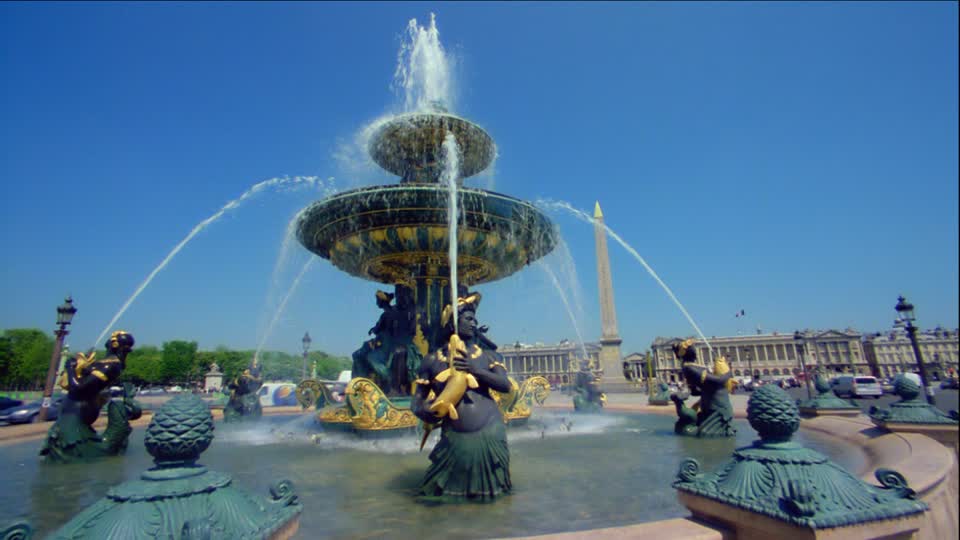From flushing out waste from the physique to serving to the mind perform, water is important to life. Extra so, vacationers know its essence whereas on trip. And the astute ones search details about the water scenario of a metropolis earlier than visiting. They perceive that their well being and comfort are as important as their trip in a overseas place.
Additionally, in case you are visiting the French capital, you’ll want to know if the faucet water within the metropolis is protected for consuming. And in case you are the kind that distrusts faucet water, will boiling the water or including filter be sufficient? The good factor is that faucet water in Paris is said protected to drink by the French and EU authorities, together with worldwide our bodies just like the (WHO).
When you find yourself out for dinner, you could ask for a carafe d’eau as a substitute of bottled water. The bottled water is dear and shouldn’t be thought of in case you are on a finances. In the meantime, waiters are anticipated to serve you faucet water, and also you would possibly observe a slight chloral style or scent. Don’t panic, it’s clear and protected.
Is The Faucet Water Of Paris Secure To Drink?
Since 1781, there was indoor operating water within the French capital, however there have been simply 125 homes linked on the time. Right now the faucet water system is safer than it was centuries in the past. On the Eau de Paris’ evaluation and analysis laboratories, they obtain and file greater than 200 samples which might be cut up amongst numerous natural chemistry, chemical, corrosion, and bacteriology departments.
The samples are introduced in from completely different sources. At first, there’s the water collected by the laboratory teams from the distribution system and from the Eaude Paris reservoirs in Paris and close-by suburb. On the remaining stage, samples are additionally collected from households to be sure that the water operating from the faucet is potable.
Nitrates are a substance that’s carefully studied. Overuse, particularly by children- has well being disadvantages in the event that they cracked up into nitrites within the physique. 50 mg/l is the standard commonplace of European origin and water portability circumstances.

The circumstances have been decided by the thought of safeguarding the assets utilized in offering consuming water and by contemplating the varied meals publicity sources. The town water with content material from 20 to twenty-eight mg/l within the yr is beneath the same old. Subsequently, it’s no potential risk for adults as regards nitrates, that are naturally in meals.
As well as, microplastics have been found in 72% of water samples collected in Paris. However there isn’t a official regulation. It’s not prone to be wholesome. Each Parisians and authorities have devised a solution to let the water be free from the scent and style of chlorine. Put the water in a water bottle with out closing it and depart it within the fridge for some hours. The scent will escape in time.
Mineral Content material of Paris Faucet Water
In Paris, the hardness of the water ranges between 20 and 30 levels (80-120 mg/L of calcium). And with a median near few pure mineral waters (80-100 mg/l), the day-to-day consumption of 1 l of Paris water covers about 25% for a kid and 10% of human calcium necessities. The town water additionally has a median of 10 mg/l of sodium. Subsequently, it’s fairly protected for consuming and for people on a low-sodium food regimen.
The place The Faucet Water In Paris Comes From
The native water supplier is Eau de Paris and is saddled with the accountability of offering protected consuming water to all of the faucets within the metropolitan districts. Half of the water residents use is from rivers and the opposite half from aquifers (underground sources).
The water system is supplied majorly by reservoirs located at websites across the metropolis. The spots of distribution can fluctuate per time attributable to sure hitches within the manufacturing course of. The Montsouris reservoir provides town from Loing and Vanne aqueducts. The Lilas and the Ménilmontant reservoirs, the Montmartre and the Belleville reservoirs, and tanks Hay-Les-Roses provide town from the Joinville plant whereas the reservoir provides from the Orly plant. Measuring 355,000 m3, the Saint-Cloud reservoir provides from the Avre aqueduct.

With no impact on water desk ranges, practically all of the underground capturing is from pure emergencies. This water is just not appropriate for consuming on the supply, so it should endure a number of aspects of filtering, which incorporates ultra-filtration and activated carbon.
A extremely uncommon factor in regards to the metropolis is that there are simply two water provide programs. Every water provide system serves distinctive functions with completely different purity ranges. The primary is for faucet water, and the second is unfiltered water that’s deployed for flushing and cleansing the streets.
There is no such thing as a admixture of water from each programs, however it is best to belief it whenever you drink faucet water in Paris. You would possibly need to step into Le Pavillon de l’eau. The town is definitely one of many locations with an entire museum devoted to its water and water provide.
Potential Issues About Consuming Faucet Water in Paris
Though the Paris faucet water is potable in response to the EU and WHO requirements, there are few recognized dangers:
Microplastics: Microplastics have been found in most faucet water within the continent. Whereas it’s lower than the bottled water, there are doubts which might be wholesome.
Chlorine bi-products: Bi-chlorination is a matter with water chlorination shaped after chlorine’s response to natural substances. Normally, these are retained inside circumstances from the water provider, however when it comes to THMs and HAA, there’s large uncertainty.
Lead: The chance of discovering a lead is low, besides one lives in a really outdated residence the place pipes haven’t been modified for many years.
Leaching/pipe corrosion: Probabilities that pipes will corrode is small, however it could trigger points if it occurs. Report whenever you discover such, however a water filter lowers the necessity to repeatedly flush pipes.
Pesticides, nitrates, and different substances under-regulated limits: Though it’s protected for adults on the managed quantity, not a lot is understood about publicity to kids and infants.
Utilizing Water Filters In Paris
There are few causes to make use of a water filter within the capital:
- Style- eradicating the chlorine will enhance the style of water immediately
- Babies/Infants- as said earlier, children are extra delicate, so it’s good for you and your loved ones to make use of a water filter to be protected in Paris.
Consuming Bottled Water
In Paris, virtually each waiter and waitresses in cafes, bars, and eating places will give you bottled water whenever you request for water. Many locals additionally use bottled water at dwelling due to security and preferable style. However it is best to know that there isn’t a overwhelming proof that faucet water is much less wholesome than desk water.
You will get bottled water in eating places and shops all through Paris. This consists of product names like Vitel, Evian, Badoit, Volvic, Hèpar, and Contrex.
Can I Drink Faucet Water In Paris? – Abstract
Sure! Faucet water in Paris is completely protected and regarded top quality. For individuals who choose better-tasting water or have points about water high quality, a high-quality water filter is really useful. However don’t forget that the recognition of bottled water doesn’t verify its superiority over faucet water health-wise.


